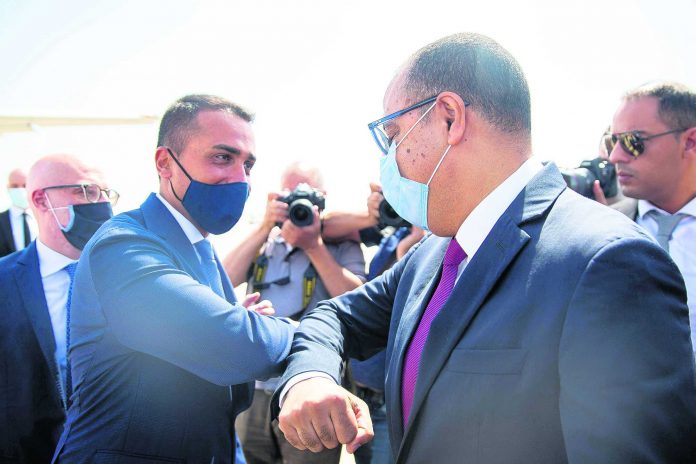As growing numbers of migrants cross from Tunisia to Europe, top Italian and European Union officials promised Monday to support Tunisian development efforts to create jobs and keep young people from trying to flee the North African country.
During a visit to Tunisia, Italian Foreign Minister Luigi Di Maio said Italy was ready to provide aid, notably for youth programs, according to the Tunisian president’s office. But Di Maio insisted that migrants who make it to Italy illegally would be sent back. The Italian government has a repatriation agreement with Tunisia and is determined to slow the pace of arrivals.
The number of migrants leaving Tunisia has grown as much as five-fold this year compared to last year reaching a total of about 5,700 people, according to estimates from the Tunisian Forum of Economic and Social Rights, an aid group following migration flows.
More migrants landing in Italy now came from Tunisia than from neighboring lawless Libya, according to Italian government figures released Saturday. A total of 16,347 migrants reached Italian shores over the past year, a 149% increase compared to the previous 12-month period, but still a number much lower than in several other recent years.
No specific amount or source of aid was announced as Di Maio and other European officials visited Tunisia’s capital of Tunis on Monday, but they sent a clear message of support for the country’s young democracy as it copes with an economic decline worsened by the virus pandemic. The EU provided hundreds of millions of euros to Tunisia earlier this year to help it fight the virus.
“Tunisia can count on the European Commission and on all its friends,” the EU’s commissioner for neighboring countries, Oliver Varhelyi, said, according to the Tunisian president’s office. Varhelyi also promised to promote job creation in Tunisia.
Di Maio, Varhelyi, Italian Interior Minister Luciana Lamorgese and EU Home Affairs Commissioner Ylva Johansson met Monday with Tunisian President Kais Saied and other top Tunisian officials.
Saied pressed for more development aid, insisting that “security solutions alone are not likely to end irregular migration.” Tunisian Secretary of State Selma Neifer pushed for more opportunities for Tunisians to work and cross borders legally in Europe.
Lamorgese, who visited Tunisia last month for similar talks, said the trip was aimed at boosting Europe-wide solidarity with Tunisia.
Tunisia’s unemployment rate stood at 15% before the coronavirus pandemic and has since climbed to 21%. The country has struggled to restore prosperity since protesters overthrew a longtime autocrat in 2011, unleashing Arab Spring uprisings around the world.
Meanwhile in North Macedonia, a major transit point for migrants entering the EU, police said Monday a car carrying a dozen migrants from Syria crashed into a stationary police truck, killing two of the car passengers and injuring the other ten as well as a police officer.
Police said the accident occurred Sunday night near the town of Radovis, about 100 kilometers (63 miles) southeast of the capital Skopje.
The Greek border with North Macedonia was closed earlier this year due to the coronavirus pandemic. But trafficking networks remain active, ferrying migrants who make their way from Turkey into Greece and then attempt to head north to more prosperous European countries.
Police said that in July alone they had detained a total of 567 migrants attempting to illegally transit North Macedonia.




















